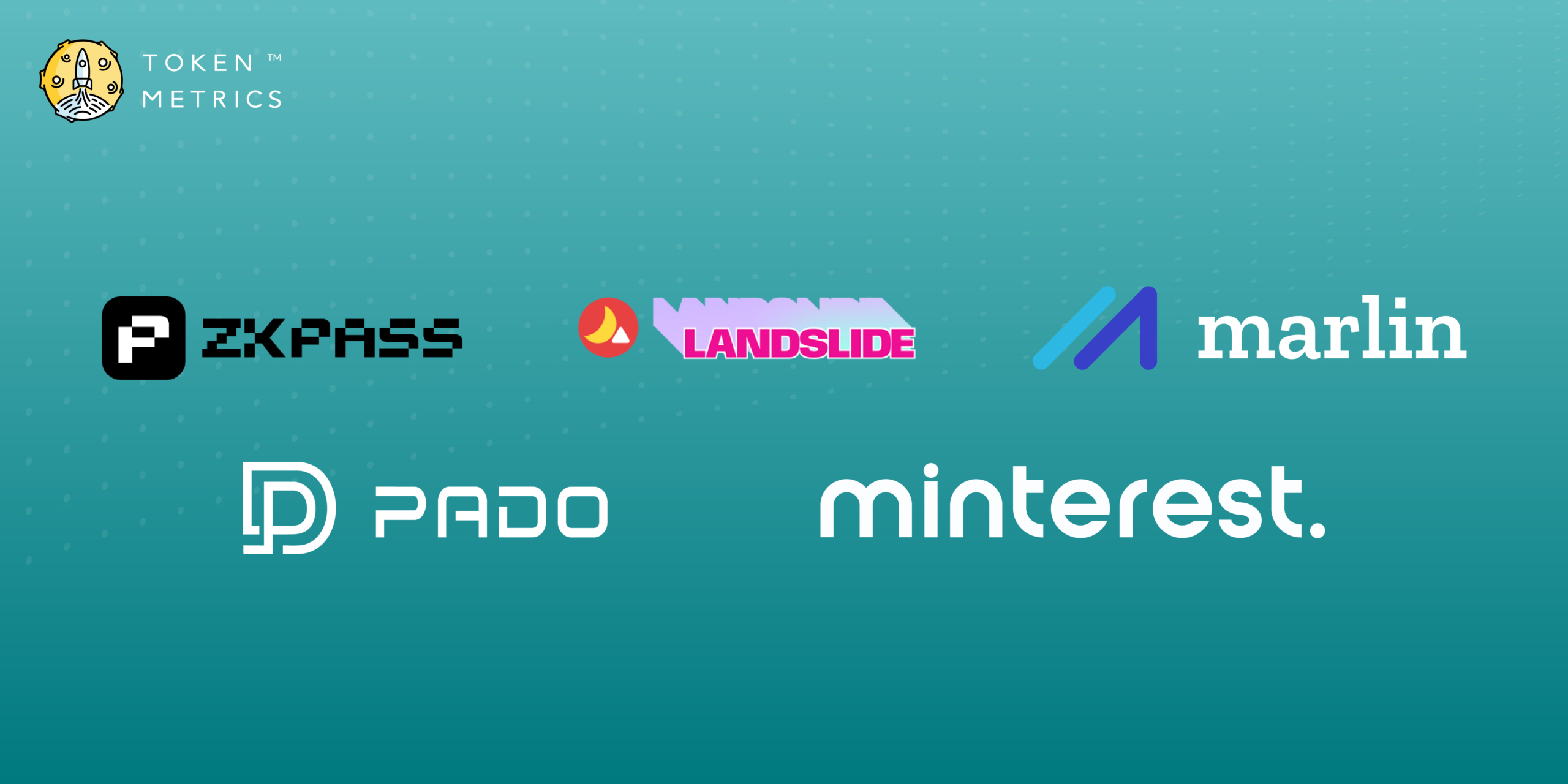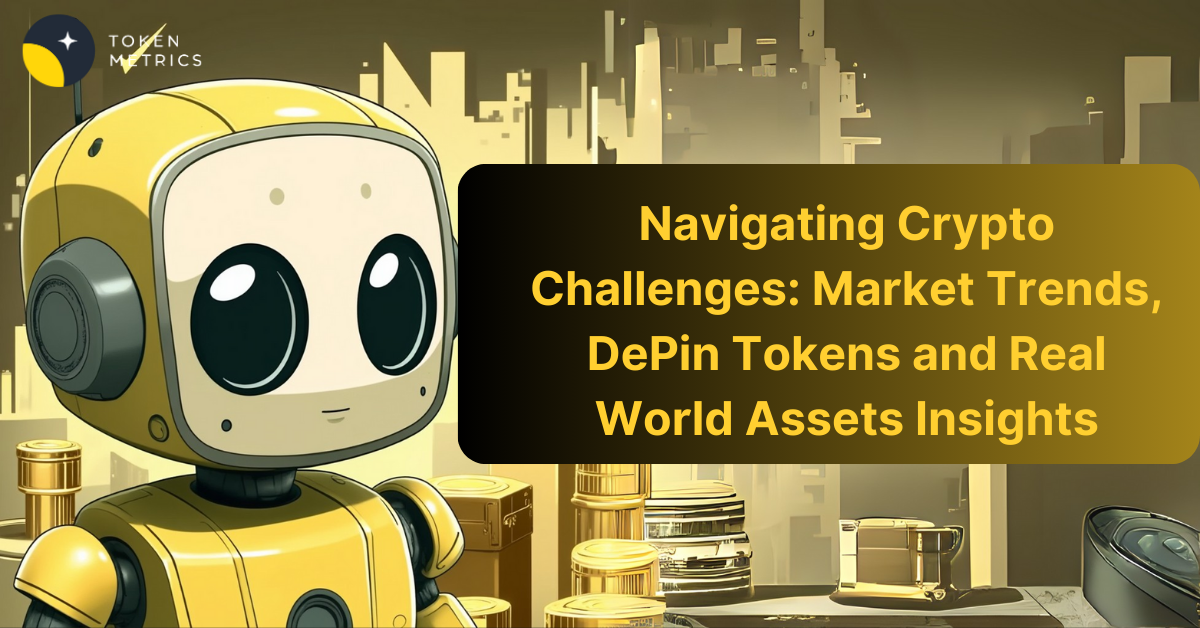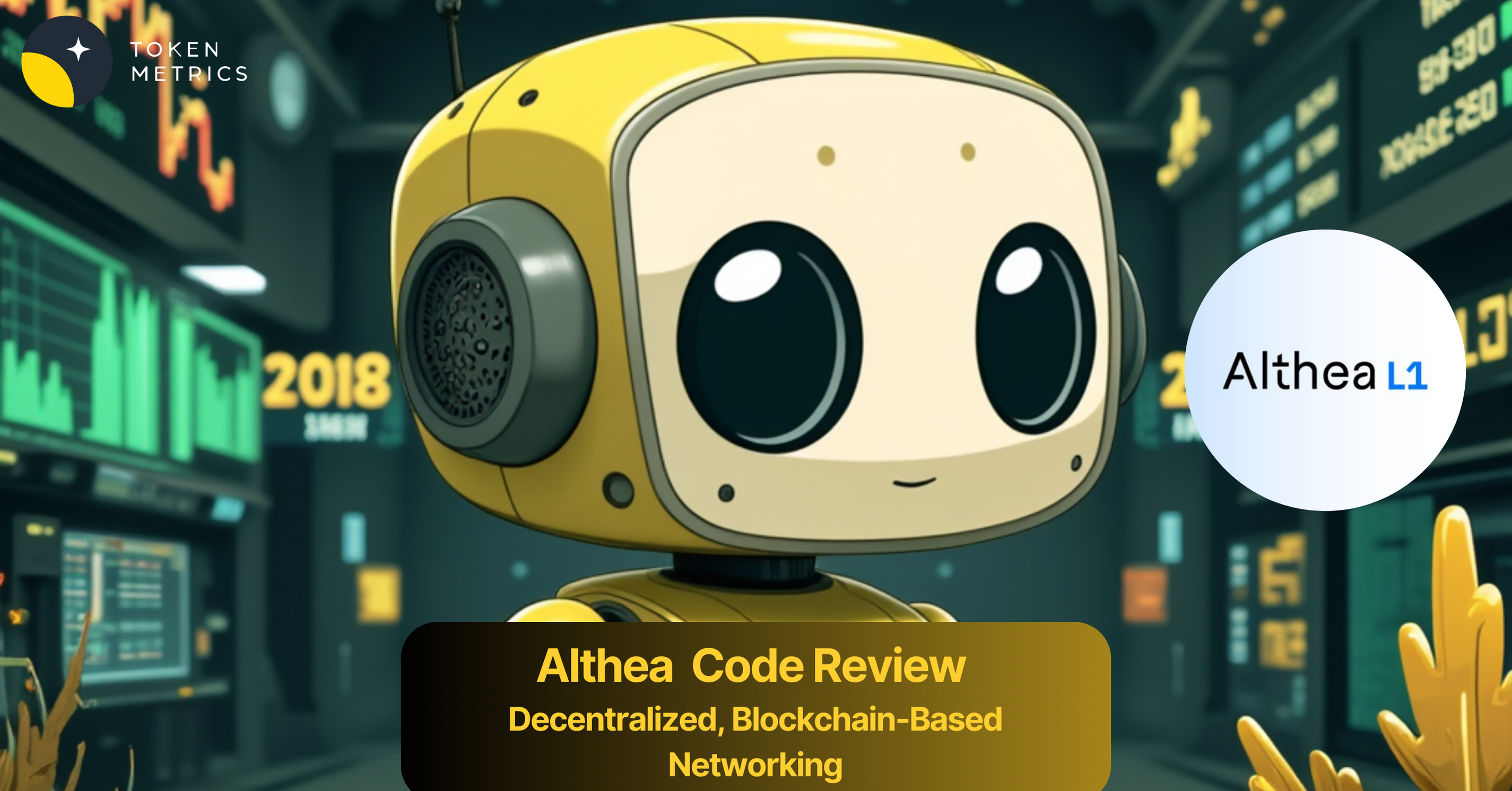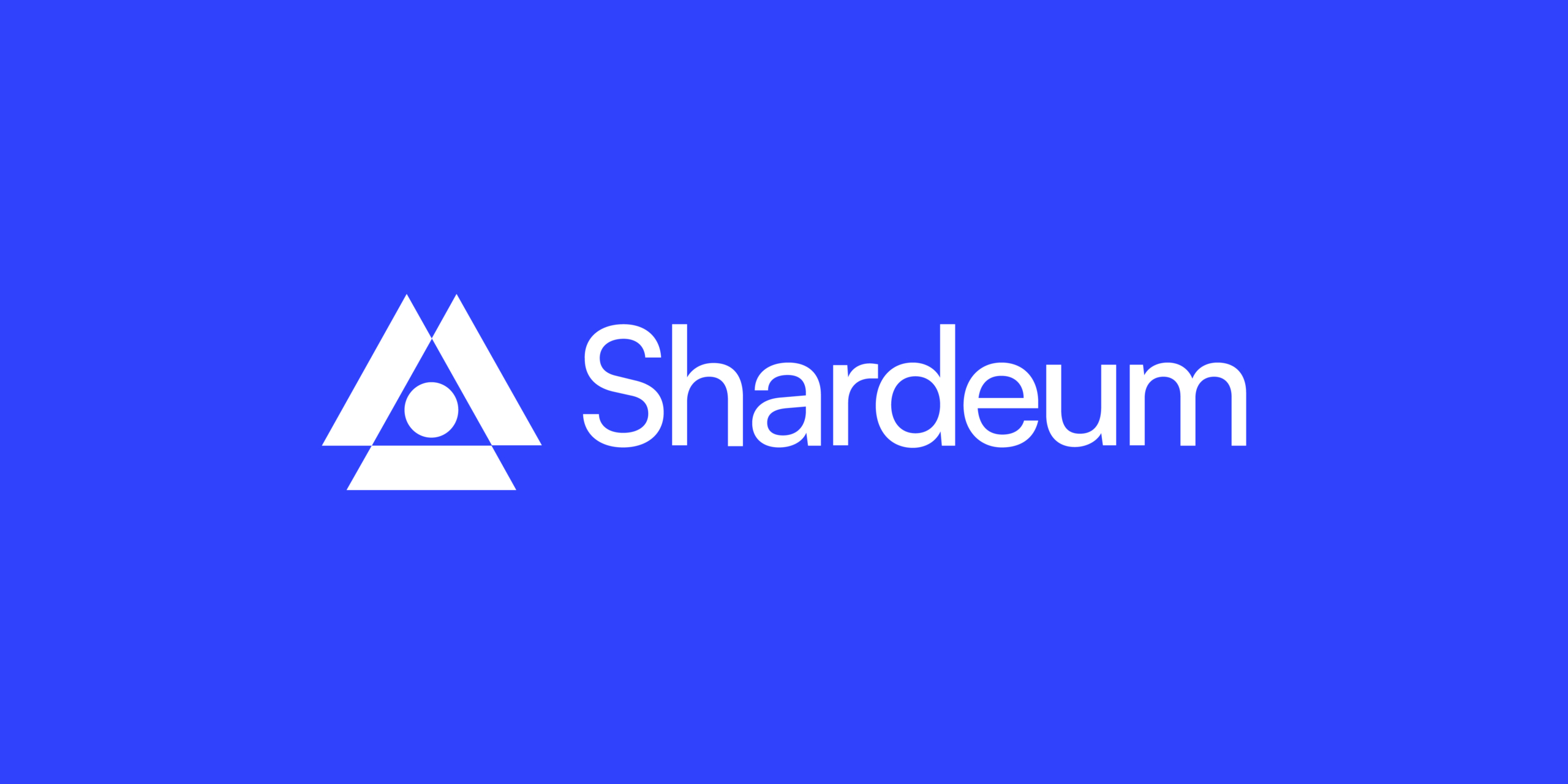TOKEN METRICS WATCHLIST
We scored many projects this week. Here are a few you should know about:
- Zkpass
- Landslide Network
- Marlin
- PADO
- Minterest
Please remember that some of these projects must still be subjected to our code review process. Still, we want to call them out here for preliminarily catching our eye based on our fundamental analysis process.
zkPass – 70.83%
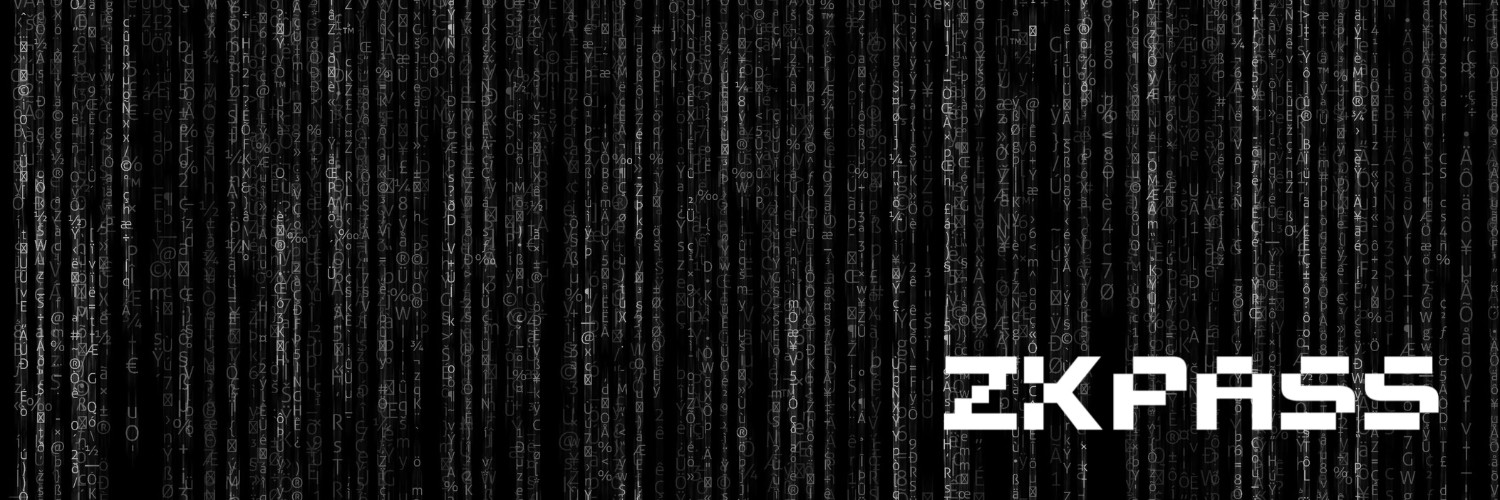 Website | X(Twitter)
Website | X(Twitter)
Sector – Zero Knowledge
Status – Testnet
zkPass represents a proprietary data protocol designed to facilitate privacy-preserving verification processes. It leverages Multi-Party Computation (MPC), Zero-Knowledge Proofs (ZKP), and three-party Transport Layer Security (3P-TLS) as its fundamental pillars. Through its TransGate feature, zkPass empowers users to selectively and confidentially validate their data across any HTTPS-enabled website, extending this capability to the web3 ecosystem. The protocol accommodates diverse data types, including but not limited to legal identities, financial records, healthcare information, social interactions, work histories, educational qualifications, and skill certifications. Notably, zkPass ensures the secure and confidential execution of verifications, eliminating the necessity to disclose or upload sensitive personal data to external parties.
Moreover, zkPass seamlessly integrates into various application scenarios, offering versatile solutions such as composable decentralized identity passes, DeFi lending protocols reliant on off-chain credit assessments, privacy-centric healthcare data marketplaces, and dating applications featuring verifiable zkSBTs (Zero-Knowledge Single Bulletproofs). Its applicability extends to any context where trust and privacy are paramount, thereby presenting a robust solution to address such requirements.
Features –
- Privacy-Preserving: zkPass enables users to prove their private data without uploading personal privacy details, ensuring confidentiality throughout the verification process.
- Verifiable: The protocol redesigns the standard TLS protocol into a three-party TLS setup, guaranteeing the provenance of private data and enhancing its verifiability.
- Compatible: zkPass seamlessly integrates with any HTTPS website without requiring additional APIs or licenses, ensuring ease of adoption and compatibility across various online platforms.
- Anti-Cheating: Utilizing a decentralized Multi-Party Computation (MPC) node network, zkPass divides the Session Key to verify the data’s authenticity, integrity, and validity. This mechanism effectively prevents malicious activities such as identity theft and data tampering.
- Memory-Efficiency: With a VOLE-based Incremental Zero-Knowledge Proof (IZK) mechanism, zkPass achieves millisecond-level Zero-Knowledge Proof generation locally within the browser environment, ensuring efficient memory utilization while maintaining robust security measures.
Investors
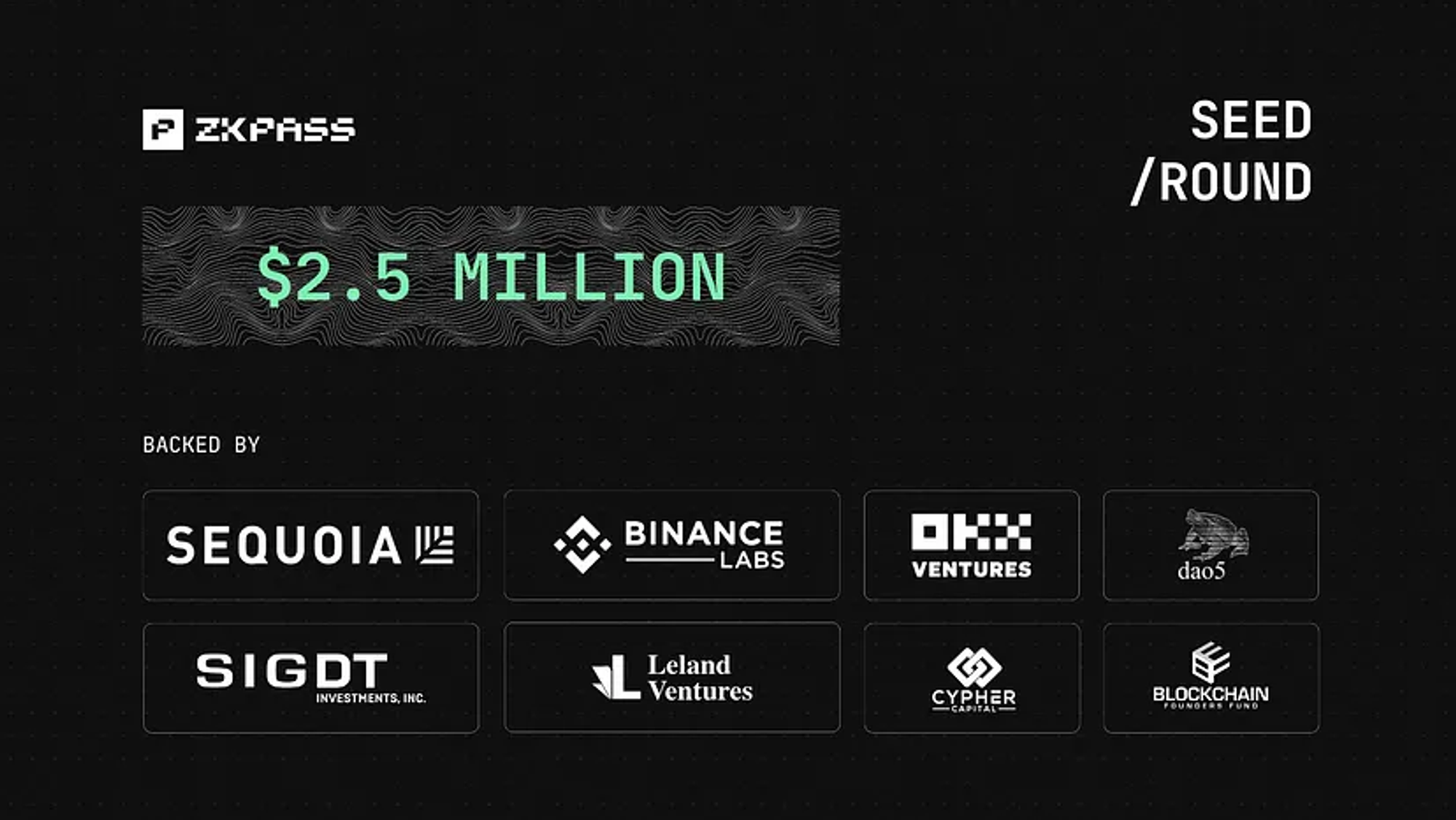
Landslide Network – 68.75%

Website | X(Twitter)
Sector – Interoperability
Status – Testnet
Landslide revolutionizes interchain connectivity by facilitating seamless integration between Avalanche and the broader interchain ecosystem via the Inter-Blockchain Communication (IBC) protocol. As a pivotal IBC connection to Avalanche, Landslide enables effortless interoperability among Avalanche, Cosmos, and other IBC-enabled chains. This advancement marks a significant milestone in cross-chain DeFi operations, scalability, and user experience enhancement. Notably, Landslide empowers any CosmWasm-based decentralized application (dApp) to operate seamlessly on the Avalanche network, amplifying the platform’s utility and accessibility. By spearheading this initiative, the team behind Landslide is actively cultivating a more interconnected and resilient blockchain ecosystem. This strategic endeavor aims to bolster liquidity, diversify applications and assets, and broaden the user base within the blockchain sphere.
Introducing an Inter-Blockchain Communication (IBC) bridge to Avalanche represents a notable advancement in the blockchain landscape, offering many advantages and opportunities for ecosystem growth and development.
- Native Integration with IBC: The Landslide Network seamlessly connects with the Inter-Blockchain Communication (IBC) protocol, facilitating native transfers of all IBC-connected tokens. This feature ensures effortless asset transfers between the Landslide Network and other IBC-enabled chains.
- Reduced Transaction Finality: A core objective of the Landslide Network is to significantly decrease the finality time of transactions on Tendermint, aiming to achieve finality in under 1 second. This enhancement positions the network as one of the fastest in the blockchain ecosystem, enhancing efficiency and user experience.
- Capitalizing on Trading Opportunities: With rapid finality times, the Landslide Network capitalizes on trading opportunities that emerge in fast-paced environments. This capability makes the platform particularly appealing to high-frequency traders seeking swift execution of transactions.
- Full Compatibility with CosmosSDK: Designed for seamless integration, the Landslide Network boasts 100% compatibility with the native Cosmos Software Development Kit (SDK). This compatibility empowers developers to migrate their decentralized applications (dApps) to the Landslide Network, fostering ecosystem growth and innovation.
- Ecosystem Collaboration: The Landslide Network fosters collaboration among Avalanche, Cosmos, and other IBC-enabled chains, aiming to forge stronger ties and interoperability within the blockchain ecosystem. The Landslide Network contributes to developing a more interconnected and resilient blockchain infrastructure by facilitating closer cooperation between these ecosystems.
Marlin – 62.50%

Website | X(Twitter)
Sector – Zero Knowledge
Status – Active
Marlin introduces a solution with trustless coprocessors, enabling the delegation of computations to off-chain microservices while ensuring proofs and attestations are securely verified on-chain. This innovative system operates as an open protocol, empowering users with surplus infrastructure to share computational resources with application developers. The services offered include jobs, backend services, zero-knowledge-based prover computations, event-based scheduling, caching, and blockchain transmission.
Key Components
- Oyster – Oyster enables decentralized deployment of services such as relays, gateways, and APIs across an untrusted node network. Oyster efficiently manages these services through smart contracts, eliminating the need for centralized control and facilitating matchmaking between users deploying enclaves and operators. The system includes a control plane allowing operators to manage their operations and users to query the operator’s state, enhancing transparency and accountability.
- Kalypso – Kalypso, another critical component, comprises a decentralized computing network proficient in generating zero-knowledge proofs (ZKPs) with high efficiency. It operates a matching engine over the decentralized Oyster network, ensuring optimal resource allocation and reliability by matching each request with a single generator to minimize redundant work and improve efficiency.
- Relayer – Relay, a blockchain-agnostic permissionless relay network, stands as yet another essential element of Marlin’s architecture. It features built-in incentivization mechanisms and offers a generic solution compatible with multiple blockchains, facilitating decentralized and incentivized information relay across various blockchain networks.
- Multichain SDK – The Multichain SDK is a pivotal tool, empowering applications to connect and interface with the Marlin network seamlessly. It standardizes real-time communication between nodes and streamlines integration, making it easier for developers to leverage Marlin’s capabilities across various applications.
- Marlin Cache – Marlin Cache completes the ecosystem with its distributed event-driven caching system tailored for Decentralized Applications (DApps). By optimizing on-chain activity and queries, Marlin Cache maintains a compact cache of frequently accessed data, reducing the need for continuous queries to the blockchain. Collaborating with the Marlin Relay, it ensures rapid updates of cached data, reflecting the current state of the blockchain network with minimal latency, thereby enhancing overall system efficiency and responsiveness.
Token
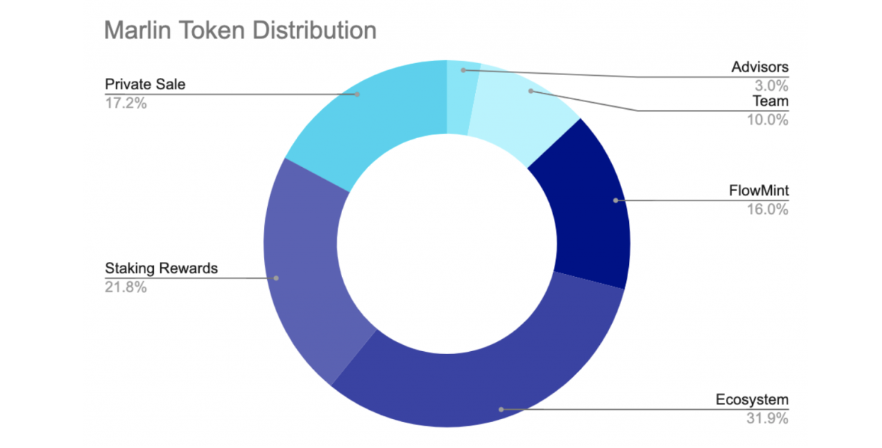
In the Marlin economy, two Ethereum-based tokens are utilized: POND and MegaPOND (MPond). While POND is initially transferable, MegaPOND (MPond) is not, except for specific instances such as the token distribution contract and transfers to/from a bridge. The POND token contract is Mintable, featuring a supply cap of 10 billion tokens.
The bridge facilitates the conversion of 1,000,000 POND to 1 MPond and vice versa, albeit with certain imposed restrictions. Each Marlin node functions as a relayer and data cacher, mandating a stake of at least 0.5 MPond for participation. Nodes receive staking rewards and fees based on their performance. Both MPond and POND tokens are eligible for delegation to other Marlin nodes. In such instances, node operators share some of their rewards with the delegator. The distribution of rewards and fees between MPond stakers and POND delegators may vary. Initially, these distributions are set to equal values but can be modified through governance mechanisms.
Additionally, holders of MPond tokens gain the privilege to participate in governance processes by proposing or voting on proposals, thereby contributing to the evolution and decision-making within the Marlin ecosystem.
Where can you buy the token?
You can buy the token from BingX, Binance etc.
PADO – 62.05%

Website | X(Twitter)
Sector – Zero Knowledge
Status – Active
PADO constitutes a cryptography-based infrastructure that integrates all Internet data seamlessly into smart contracts. PADO introduces a decentralized zkAttestation and Computation PADO distinguishes itself by leveraging state-of-the-art cryptographic methodologies, such as MPC-TLS (Secure Multi-Party Computation on Transport Layer Security) and IZK (Interactive Zero-Knowledge Proofs), to facilitate blind data attestation. This innovative approach ensures that the attestor can verify data authenticity without access to raw data, including public and private user information. Despite this limitation, cryptographic techniques enable the attestor to confirm the origin of transmitted TLS data securely and reliably. This innovative framework empowers users to validate their off-chain data securely and privately, generating data proofs or attestations, which can be readily shared and accessed by relevant parties. PADO ensures that user data originates from a verifiable source and remains unaltered throughout the sharing process, establishing its authenticity and trustworthiness. With a commitment to protecting user privacy, PADO employs zero-knowledge proofs during data computations to adhere to data minimization principles. This approach safeguards sensitive information while enabling secure data transactions and attestations.
Key features:
- Secure Data Retrieval: Leveraging the standard TLS protocol with the co-processing of Multiparty Computation (MPC), PADO ensures the authenticity and security of data retrieval processes. The MPC-TLS solution enhances the transport layer security, safeguarding Internet communications.
- Interactive Zero Knowledge Proofs (IZK): PADO employs VOLE-based IZK to create lightweight data attestations from the internet. This innovative protocol allows for interactive communication within browsers or mobile devices, ensuring a flexible and secure user experience.
- Verifiable Computation Paradigm: Enabling a verifiable computation paradigm on massive data sets, PADO couples with general computation techniques like zkVM. This ensures correctness and public verifiability, laying the foundation for secure data processing.
- Blockchain Integration: PADO goes beyond by integrating with different on-chain frameworks and smart contracts, establishing a composable data profile. Its support for various blockchains (L1/L2) and decentralized applications (dApps) enhances interoperability in the evolving blockchain landscape.
- PADO Extension for Monetization and Privacy Protection: The PADO extension empowers users to convert internet data into Web3 smart contracts, offering the potential for personal data monetization while prioritizing privacy protection. Users can seamlessly connect, verify data, create zkAttestations, and leverage them within Web3 applications.
- Developer and Business Support: PADO recognizes the importance of collaboration and innovation, providing both SDK and API toolkits. This facilitates developers and business partners in building data-driven features, expanding the ecosystem around PADO.
Minterest – 60.42%

Website | X(Twitter)
Sector – DeFi
Status – Active
TVL – $3.74M
Minterest stands out as the pioneering decentralized money market protocol, meticulously crafted to embody self-sustaining tokenomics while ensuring optimal long-term returns for suppliers and borrowers. Through its innovations, Minterest has the capacity to capture significantly higher fees, up to five times greater, which are then entirely redistributed back to its user base.
The Minterest protocol employs advanced smart contract technology to facilitate the supply and borrowing of various token assets by users. Through dynamic computation in real-time, the protocol adjusts interest rates based on the balance between supplied and borrowed assets. At its foundation, Minterest establishes token markets featuring pools of diverse token assets. Interest rates are algorithmically determined and governed by the interaction between lender supply and borrower demand. Unlike traditional peer-to-peer lending models, users engaging with a token asset interact directly with the protocol’s underlying asset pools, earning or paying dynamic interest rates dictated by market dynamics. This framework bears resemblance to conventional forex markets but operates without the need for intermediaries.
Each token market within the Minterest protocol maintains a publicly accessible, transparent ledger, recording all transactions and associated interest rates. Notably, Minterest distinguishes itself from other lending protocols through innovative features such as its automated liquidation mechanism. The protocol autonomously manages the solvency of under-collateralized borrower positions, acting as a liquidator to maintain the integrity of each underlying asset pool while capturing liquidation fees for the protocol’s benefit.
Investors

Token
The native token of Minterest, known as $MINTY, primarily facilitating governance and incentivizing participation through its reward system. Crafted with the intention of mitigating on-market token supply and bolstering token utility in tandem with Total Value Locked (TVL) expansion, Minterest’s Tokenomics framework encompasses a total supply of 65,902,270 MINTY tokens.

